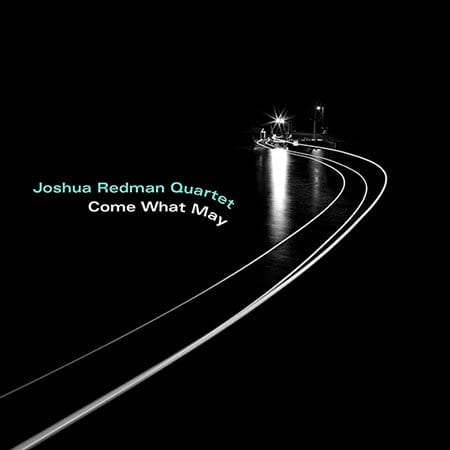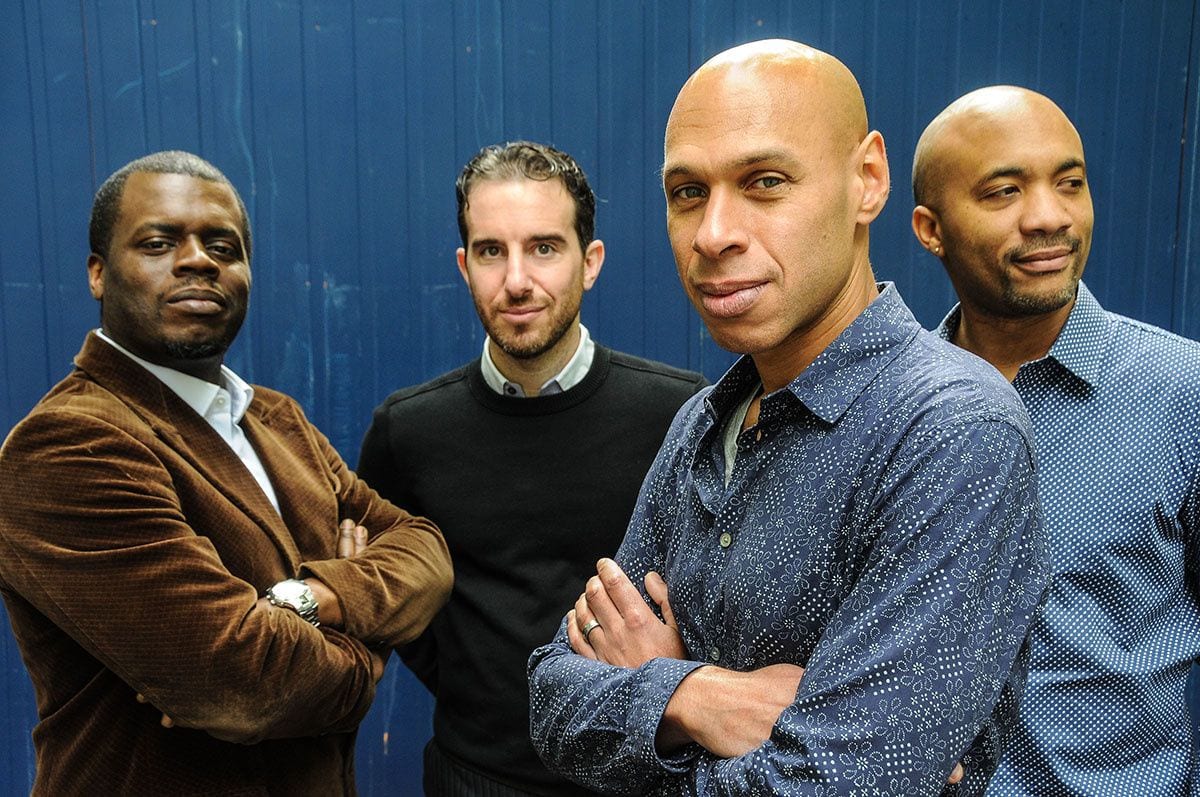
Forget “it’s the notes they don’t play”: Come What May, the title of the Joshua Redman Quartet’s first studio LP in 25 years, should be jazz’s motto. There are brevity and clarity to the expression which captures something that great jazz musicians can achieve after years spent touring the club circuit and crystallizing their sound in various studio sessions: the simultaneous feeling of intricacy in composition and ease in playing.
At multiple points during Come What May, these four musicians – Redman on saxophone, Aaron Goldberg on piano, Rueben Rogers on bass, and Gregory Hutchinson on drums – tie themselves into knots for which at times it seems impossible to find a solution. Yet in just about every case, for as quickly as the Quartet tangles itself up, it seamlessly finds its way out and takes the music exactly in the right direction it needs to go. This band has been together for over two decades, and it shows.
In recent years, Redman has taken his talents on the saxophone to numerous side-projects and collaborations, including the Bad Plus (The Bad Plus Joshua Redman, 2015) and Brad Mehldau (Nearness, 2016). His work with Mehldau ranks among his best, particularly his vital contributions to one of this decade’s finest jazz releases in Mehldau’s 2010 double LP opus Highway Rider. Listening to Come What May, one gets the feeling of Redman playing from home base. There are an inviting familiarity and deep comfort with his fellow musicians that emanate from the music, both of which end up being as musically important as, say, how the trio leaves space for soloing within each piece. See the way Redman, Goldberg, and Hutchinson make their presence as light as possible while Rogers lays out a rhythmically intricate solo on the title track.
This camaraderie, however, doesn’t result in the quartet simply resting on its laurels. It’s a testament to the skill and creativity of these four players that even at their most relaxed, the music feels invigorating and sophisticated. The aptly titled “How We Do”, the first Come What May number to be released to the public, sounds like a future standard from the moment its core refrain is established. Over a zippy three and a half minutes, the group variates on the main theme, with Redman and Goldberg taking up some impressive and even catchy soloing. It’s rare that a true ensemble jazz piece also has the ability to sound like a pop single, but “How We Do” achieves just that; the lead theme is instantly hummable, and the structure of the tune practically begs other jazz bands to put their own spin on it, and perhaps even to expand it.
Even on tracks of more substantial length, Redman and his bandmates expertly establish catchy motifs and riffs which sustain each track through their instrumental meanderings. From the klezmer-inspired opening lick of “DGAF” to the lead refrain of “I’ll Go Mine” – where Redman’s saxophone takes on a surprising vocal-like quality – the tracks of Come What May exhibit the instrumental prowess inherent to jazz performance and the genre’s ability to express its complex rhythmic designs in catchy ways.
When the musical emphasis shifts more in the direction of free play, as it does strikingly on the closing number “Vast”, a showcase for Goldberg’s piano, the Quartet never once sounds like it’s drifting off in the way that it’s all too easy to do in a genre where improvisation comes baked into its songwriting ethos. Offering many musical delights for both the seasoned jazz aficionado and the casual listener, Come What May stands out in the crop of 2019’s jazz releases, and might be one of the best albums of this year, period.
- Middleman: Joshua Redman and Jazz's Vanishing Division ...
- Joshua Redman and Brad Mehldau: Nearness - PopMatters
- Joshua Redman: Compass - PopMatters
- The Bad Plus Joshua Redman: The Bad Plus Joshua Redman
- Joshua Redman: Walking Shadows - PopMatters
- Redman Mehldau McBride Blade: RoundAgain | Music Review - PopMatters


![Call for Papers: All Things Reconsidered [MUSIC] May-August 2024](https://www.popmatters.com/wp-content/uploads/2024/04/all-things-reconsidered-call-music-may-2024-720x380.jpg)



